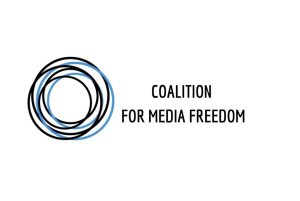“This is a totalitarian regime in the making. May our grandchildren forgive us…”. It was in these dramatic terms that some MEPs spoke out yesterday at the European Parliament’s plenary session in Strasbourg on the European Media Freedom Act (EMFA). This act, which is due to come into force on 8 August, is supposed to guarantee the independence of the media, the protection of journalists and the transparency of media ownership in the European Union. However, the debate showed just how deeply divided and opposed the positions are, from those who consider the EMFA absolutely essential to those who see it as a danger to freedom of expression. Some MEPs went so far as to compare EMFA to a dystopian instrument of social control.
MEPs supporting the European regulation stressed its importance for democracy and the fight against disinformation. Hristo Petrov (Renew Europe) said: “If we protect media freedom, we protect people’s freedom and democracy”. Diana Riba i Giner (Greens/EFA) stressed: “Europe has guaranteed citizens the right to receive free and diverse information”. Sunčana Glavak (EPP) added that “the EU is founded on values, and if those values mean anything, then EMFA is a necessity, not a luxury”. Evin Incir (S&D) concluded: “We have a duty to strengthen independent media. It is the responsibility of each Member State to implement EMFA. The question is not if, but when. And the time is now”.
Following the plenary debate, the EU Directorate-General for Communication organised a seminar on EMFA. Sabine Verheyen, Vice-President of the European Parliament, Rapporteur and Chair of the Monitoring Group on the EMFA, underlined how obvious it was during the plenary session that many MEPs had not even read the Act in full. “I expect the Member States to implement what they have agreed during long hours of negotiations with the European Parliament and the European Commission,” she said. “This is not the case at the moment and we, the European Parliament, must put pressure on the European Commission as guardian of the Treaties to put pressure on the Member States to implement it properly. Citizens and politicians need to know what is in this law, and journalists need to make it public”.
Diana Riba i Giner warned the Member States: “Some are still reluctant to implement the EMFA, or are rushing to amend their legislation in the way that suits them, before implementing the EMFA. Clearly, there is still a lot of work to be done”.
Carlos Aguilar Paredes, chairman of the European Board for Media Services (EBMS), the new European regulator, pointed out that the EBMS is responsible for issuing opinions in cases where international players take measures likely to have an impact on media pluralism: “Each intervention must be justified and the EBMS must act as an impartial judge”. He stressed the importance of cooperation with national regulators and transparency in media ownership.
Hungarian journalist Veronika Munk said that “Hungary is an example of a country where the government claims to enforce the law, but in reality millions of euros go to government-sponsored media. EMFA should be seen more as a vaccine than a cure”.
Maja Sever, President of the European Federation of Journalists (EFJ), voiced her concerns: “What we need to focus on today are the existing gaps. Structured dialogue is essential. The next step must be to ensure proper and proactive implementation of the Media Freedom Regulation, recognising that without sanctions, this document is just words on paper. Much of the current debate in Parliament reflects a worrying lack of understanding of journalism and the role of journalists. So what’s the plan? How do we put pressure on national governments to act?”
Sabine Verheyen replied that pressure should continue to be brought to bear on national governments, by closely monitoring the implementation process and regularly publishing data on the progress made. Ms Verheyen also warned of the dangers posed by social media algorithms:
“Structural and political debate and discourse are no longer possible, because algorithms do not encourage the kind of diverse discourse that is necessary for democratic societies to function properly”.
In the wake of a press conference held by the President of the European Parliament, Roberta Metsola, and the Danish Prime Minister, Mette Frederiksen, Ms Metsola, when asked how EMFA and other European legislation, such as the DSA and the AI act, could be transformed into genuine protection for journalists, replied that the European Parliament will continue to insist on the correct implementation of the laws it adopts and will work closely with the Danish Presidency to ensure consistent implementation in all Member States.
“The EU also financially supports projects that promote a free, diverse, and pluralistic media environment and that address structural challenges for the media,” she said. “In this area, we work closely with journalists and media organisations. I regularly meet with journalists from all over Europe. During this plenary session, we discussed with the Commission and the Council the current state of implementation of the EMFA in the Member States. Last month, our Committee on Civil Liberties, Justice and Home Affairs hosted a public hearing on media freedom and the protection of journalists, with a focus on the ever-evolving challenges within the EU media legal framework. These exchanges are key to understanding needs and ensuring that they are reflected in our legislation. The Union is not static; we and our laws must constantly evolve to reflect new realities on the ground.”
“Coming from Malta, this issue is close to my heart. I have advocated for a new anti-SLAPP directive to protect journalists, activists, academics, artists, and researchers from abusive lawsuits intended to silence them. Member States will have to transpose these measures into national law by May 2026.”
After the official presentation of the EU Rule of Law Report, Maja Sever had an informal chat with the European Commissioner for Justice, Michael McGrath. She stressed the importance of working towards the implementation of the EMFA, and invited him to continue his cooperation with the EFJ and to meet with EFJ representatives in Brussels next autumn.
“The EFJ’s work on the ground and the effective implementation of EMFA and other legislation are crucial for the survival of journalism,” said the EFJ President. “This is why we need joint efforts and political will, both at European and national level, as well as the inclusion of journalists’ representatives who know what it means to be a journalist today. The debates in Strasbourg have convinced me that only the quality of its practical implementation at the level of each State will show whether the EMFA really becomes a shield for free and independent media or just another European document with no real impact”.
Source: EFJ




